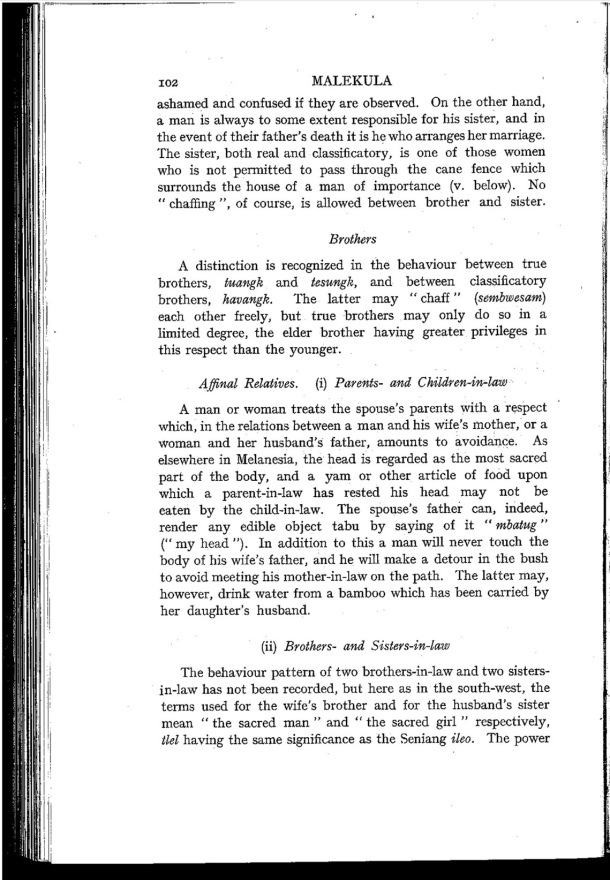|
|  [Note: this transcription was produced by an automatic OCR engine]
4
1
A
.'
ii
it
P
in
‘.
H‘
I z
t
t
; —
102 MALEKULA ‘
ashamed and confused if they are observed. On the other hand,
a man is always to some extent responsible for his sister, and in
the event of their father's death it is he who arranges her marriage.
The sister, both real and classiï¬Åcatory, is one of those women
who is not permitted to pass through the cane fence which
surrounds the house of a man of importance (v. below). N0
“ chafï¬Ång â€ù, of course, is allowed between brother and sister.
Brothers
A distinction is recognized in the behaviour between true
brothers, mangle and tesungk, and between classiï¬Åcatory
brothers, havangk. The latter may “chaff " (sembwesam)
each other freely, but true brothers may only do so in a
limited degree, the elder brother having greater privileges in
this respect than the younger.
Aï¬Åinal Relatives. (i) Parents- and Ch1lld1’en~in»law
A rnan or woman treats the spouse's parents with a respect
which, in the relations between a man and his wife's mother, or a
woman and her husband’s father, amounts to avoidance. As
elsewhere in Melanmia, the head is regarded as the most sacred
part of the body, and a yarn or other article of food upon
which a parent-in-law has rested his head may not be
eaten by the child-in~1aw. The spouse’s father can, indeed,
render any edible object tabu by saying of it “ mbrztug â€ù
(“ my head"). In addition to this a man will never touch the
body of his wife’s father, and he will make a detour in the bush
to avoid meeting his mother-in-law on the path. The latter may,
however, drink water from a bamboo which has been carried by
her daughter's husband.
(ii) Brothers~ and Sisters-in-law
The behaviour pattern of two brothers-in-law and two sisters-
in-law has not been recorded, but here as in the south-west, the
terms used for the wife's brother and for the husband's sister
mean “ the sacred man â€ù and “ the sacred girl â€ù respectively,
tlel having the same signiï¬Åcance as the Seniang ileo. The power
|